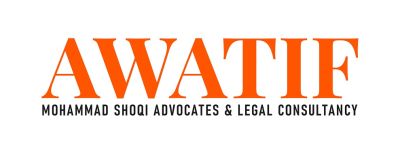Introduction:
The UAE has implemented measures to combat money laundering, terrorism financing, and the financing of unlawful organizations, with Federal Decree-Law No. 20/2018 serving as a pivotal legislation in this regard.
Enacted to safeguard the integrity of the UAE's financial system and uphold its international commitments, this law outlines comprehensive provisions aimed at detecting, preventing, and prosecuting illicit financial activities.
Enhanced Investigative Powers:
Article 7 of Federal Decree-Law No. 20/2018 grants the public prosecution and law enforcement authorities the authority to access accounts, records, and documents held by third parties, including the ability to request direct access to stored data in computer systems and information technology programs.
This enables the identification, tracking, and seizure of funds associated with criminal activities. Furthermore, the law empowers law enforcement authorities to conduct undercover operations and adopt various investigative methods to uncover crimes or identify perpetrators.
Establishment of Financial Intelligence Unit (FIU):
Article 9 introduces the establishment of an independent Financial Intelligence Unit (FIU) tasked with receiving and analysing suspicious transaction reports from financial institutions and designated non-financial businesses.
The FIU is important in examining these reports, identifying potential threats, and referring relevant information to competent authorities for further action. Additionally, it facilitates international cooperation by exchanging information with counterpart agencies in other states, thereby enhancing the global fight against financial crimes.
Obligations on Financial Institutions:
Under Article 16 of the decree-law, financial institutions and designated non-financial businesses are required to conduct risk assessments, implement due diligence measures, and develop internal controls to mitigate the risk of money laundering and terrorism financing.
These entities must also maintain records of all transactions, cooperate with law enforcement authorities, and comply with directives issued by competent authorities, including those related to UN Security Council resolutions.
International Cooperation and Legal Assistance:
Articles 18 and 19 outline provisions for international cooperation and legal assistance in combating financial crimes. The UAE judicial authority is obligated to assist foreign authorities in investigating and prosecuting money laundering, terrorism financing, and related offences. Similarly, the UAE commits to promptly responding to requests for information and cooperation from foreign entities, subject to certain conditions outlined in the law.
Penalties and Enforcement:
The decree law stipulates significant penalties for individuals and entities found guilty of money laundering, terrorism financing, or related offences. Penalties are preventing illicit financial activities and ensuring compliance with anti-money laundering and counter-terrorism financing measures.
Individuals convicted of money laundering may face imprisonment ranging from 1 to 10 years, fines ranging from AED 100,000 (approximately USD 27,225) to AED 5,000,000 (approximately USD 1,361,250), or a combination of imprisonment and fines. Aggravating factors such as abuse of influence, involvement in organized crime, or recidivism may result in higher fines and longer prison sentences, with fines ranging from AED 300,000 (approximately USD 81,675) to AED 10,000,000 (approximately USD 2,722,500).
The provisions regarding confiscating proceeds from illegal activities are outlined in Article 26, empowering courts to order the confiscation of funds, proceeds, and instrumentalities derived from money laundering or terrorism financing activities. Additionally, it allows for imposing fines in lieu of confiscation under certain circumstances.
The enforcement procedures under the decree law involve comprehensive investigation and prosecution by law enforcement authorities, including evidence gathering, witness interviews, and the use of investigative methods like undercover operations. Judicial proceedings ensure defendants' rights to legal representation and a fair trial, with appeals available for convicted individuals through the judicial system. Confiscation orders issued by courts target illicit funds and assets, which are forfeited to the government to compensate victims or fund anti-crime initiatives, as outlined in Article 26.
Conclusion:
Federal Decree-Law No. 20/2018 represents a cornerstone in the UAE's efforts to combat money laundering and terrorism financing. By establishing robust legal frameworks, enhancing investigative powers, promoting international cooperation, and imposing penalties, the UAE is safeguarding its financial system and combating illicit financial activities.









